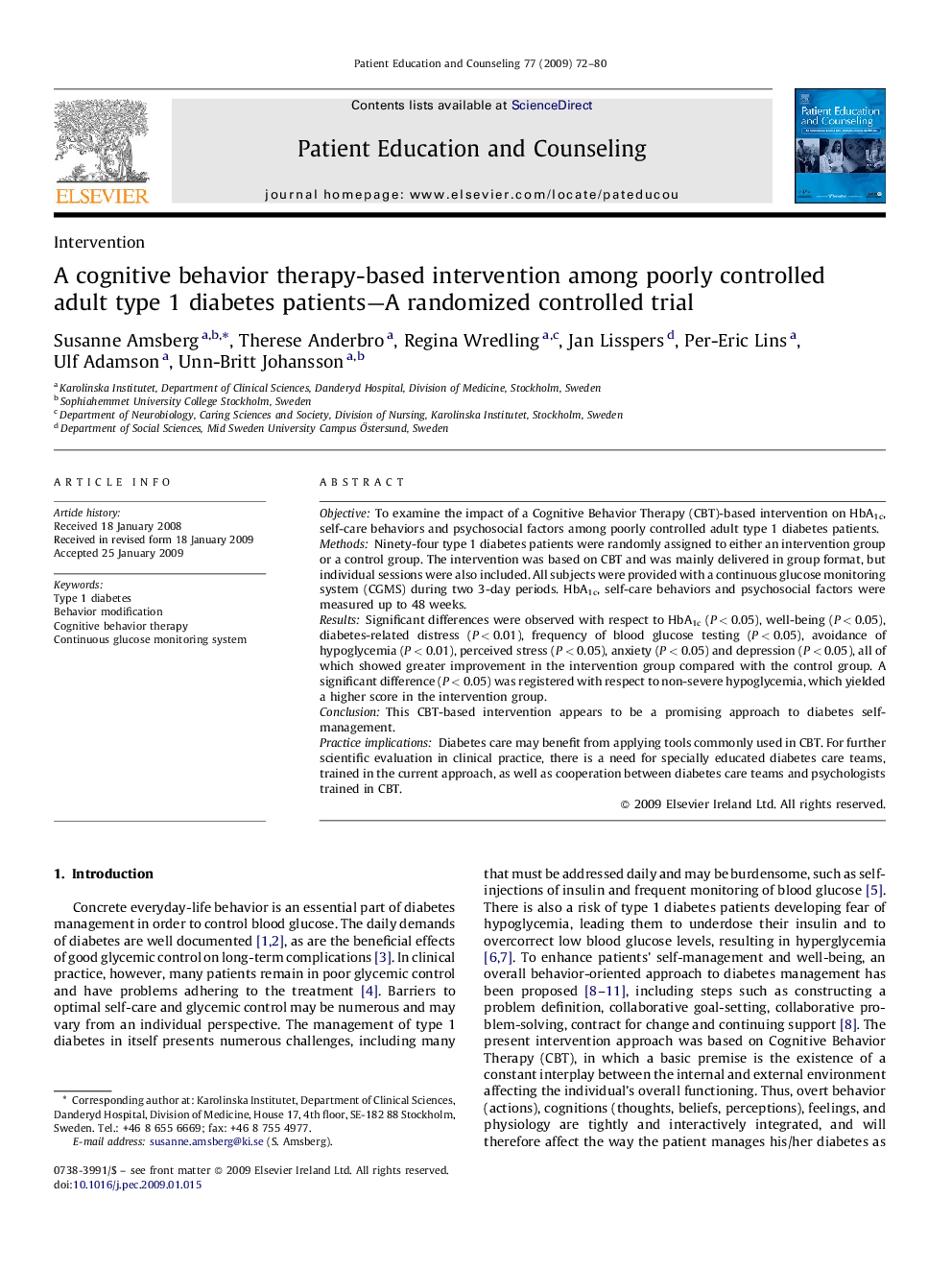| Article ID | Journal | Published Year | Pages | File Type |
|---|---|---|---|---|
| 3816296 | Patient Education and Counseling | 2009 | 9 Pages |
ObjectiveTo examine the impact of a Cognitive Behavior Therapy (CBT)-based intervention on HbA1c, self-care behaviors and psychosocial factors among poorly controlled adult type 1 diabetes patients.MethodsNinety-four type 1 diabetes patients were randomly assigned to either an intervention group or a control group. The intervention was based on CBT and was mainly delivered in group format, but individual sessions were also included. All subjects were provided with a continuous glucose monitoring system (CGMS) during two 3-day periods. HbA1c, self-care behaviors and psychosocial factors were measured up to 48 weeks.ResultsSignificant differences were observed with respect to HbA1c (P < 0.05), well-being (P < 0.05), diabetes-related distress (P < 0.01), frequency of blood glucose testing (P < 0.05), avoidance of hypoglycemia (P < 0.01), perceived stress (P < 0.05), anxiety (P < 0.05) and depression (P < 0.05), all of which showed greater improvement in the intervention group compared with the control group. A significant difference (P < 0.05) was registered with respect to non-severe hypoglycemia, which yielded a higher score in the intervention group.ConclusionThis CBT-based intervention appears to be a promising approach to diabetes self-management.Practice implicationsDiabetes care may benefit from applying tools commonly used in CBT. For further scientific evaluation in clinical practice, there is a need for specially educated diabetes care teams, trained in the current approach, as well as cooperation between diabetes care teams and psychologists trained in CBT.
